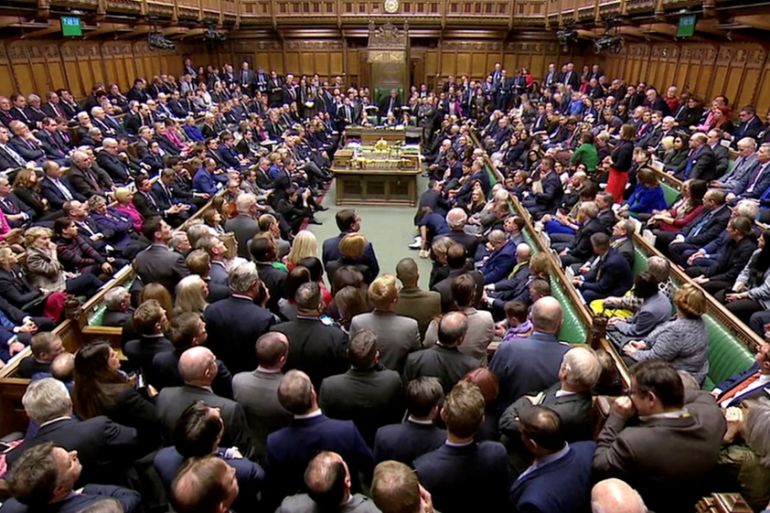‘Fog of confusion’: Brexit defeat raises concerns over UK economy
Investors and business leaders fear further damage to British economy after Prime Minister Theresa May loses vote.

Business leaders and investors say they are worried that a crushing parliamentary defeat for British Prime Minister Theresa May‘s Brexit plan further complicates the outlook for the UK’s economy.
Members of parliament on Tuesday voted 432 to 202 to reject the deal.
Keep reading
list of 4 itemsNorthern Ireland agreement could end deadlock, restore government
Forced to become British: How Brexit created a new European diaspora
Number of Britons regretting Brexit hits new record high: Survey
“As things stand, UK law says we will leave on March 29, with or without a withdrawal agreement, and yet MPs are behaving as though they have all the time in the world,” the UK’s Institute of Directors said. “How are businesses meant to prepare in this fog of confusion?”
Credit rating agency Moody’s said in a statement that “the outcome of the vote further extends the period of uncertainty over the UK’s relationship with the EU … This also means that a wide range of outcomes remain possible, from a ‘no-deal’ Brexit in March to a decision to remain indefinitely in the European Union.”
May faces a vote of confidence in parliament on Wednesday which she is expected to win.
Her proposed deal was approved on November 25 by leaders of the 27 countries remaining in the European Union. But it has faced stiff opposition by British legislators from across the political spectrum, including her own Conservative Party.
Sticking points
The plan covers the UK’s financial settlement with the bloc and the rights of UK and EU citizens living in each others’ territories. But the most contentious part of the deal has been its proposed mechanism to prevent a so-called “hard border” between Northern Ireland, which is part of the UK, and Ireland, an EU member state.
Many business leaders fear that the British economy would be hurt if the UK leaves the EU without an agreement ensuring the continued smooth flow of goods and services across the country’s borders.
“Leaving the EU, our biggest and most important trading partner, without a deal and without a transition period to cushion the blow would put this sector and jobs at immediate risk,” Britain’s Society of Motor Manufacturers and Traders said in a statement.
|
|
Slowing growth
The UK’s economy grew at its weakest pace in half a year in the three months to November as manufacturers were hurt by global trade wars and concerns over Brexit.
The British pound rallied more than one US cent to above $1.28 after Tuesday’s vote.
Some investors say a delay or cancellation of Brexit would restore the UK’s economic potential.
Investment bank Goldman Sachs said in a note: “We think the prospect of a disorderly ‘no deal’ Brexit has faded further.”
Supporters of Britain’s departure from the bloc argue that being outside the EU frees it up from bureaucracy and allows the UK to strike trade deals with rapidly growing countries such as India and China.
![May faces a confidence vote in Parliament on Wednesday [File: Alastair Grant/AP]](/wp-content/uploads/2019/01/4db5deb624a047b9bbec79619104aef2_18.jpeg)